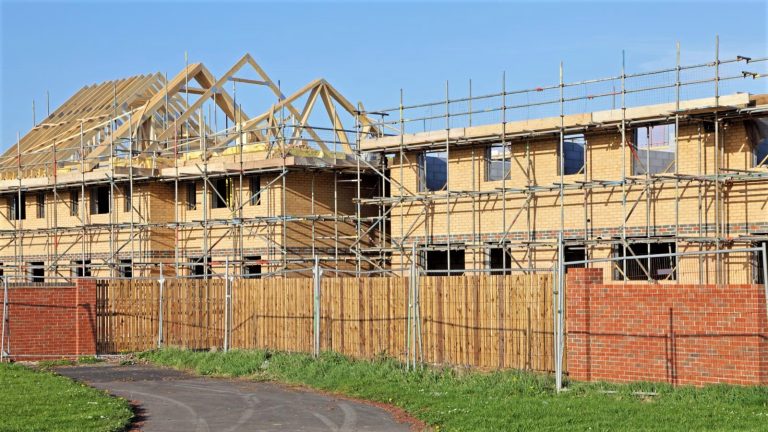The latest Barclays Business Prosperity Index report1 reveals that despite affordability pressures, regulatory challenges and financial caution, four in five businesses (83 per cent) operating in housebuilding and its supply chains remain confident about their outlook for the year ahead. Barclays’ anonymised client data from around 70,000 UK businesses, combined with research from 500 industry leaders1 and 2000 consumers2, also shows strengthening activity at the start of the development pipeline, sustained buyer demand for new-build homes and a major uplift in planned investment. Key findings from the Barclays Business Prosperity Index include: Sector investment and innovation gathers pace Talent, skills and AI are all becoming major investment focus areas. Four in 10 (40 per cent) businesses with skills shortages are investing in new construction methods to reduce manual labour, alongside developing early career schemes (39 per cent), and focusing on training and upskilling (36 per cent). Meanwhile the average intended AI investment of £441,281 reflects growing demand for AI assisted design and planning (37 per cent), renewable and energy efficient materials (36 per cent), business management automation software (35 per cent) and building information modelling (29 per cent). Momentum is particularly strong in Electronics, where intended AI spend exceeds £500,000, while trades such as Plumbing (£380,000), Carpentry (£347,320) and Painting & Decorating (£328,371) signal smaller, though material allocations. Future Homes Standard: A top priority but confidence in readiness lags Nearly all firms (98 per cent) say aligning with the Government’s Future Homes Standard is a priority for the next 12 months, yet 82 per cent express concern about their readiness. Key areas where support is most needed include installing low carbon heating systems (21 per cent), applying the new Home Energy Model (20 per cent) and meeting updated ventilation standards (18 per cent). Despite this, businesses are taking proactive steps, with 30 per cent investing in specialist equipment, training and technology to boost compliance. Strong Gen Z new-build appetite despite affordability pressures A quarter of homeowners (25 per cent) report they live in a new-build property. This rises amongst first-time buyers, with nearly half (47 per cent) of those who bought their first home in the past year opting for a new‑build property. New properties are most popular amongst Gen Z (61 per cent of homeowners) with desirable location named as the top driver of purchases (28 per cent). A fifth (20 per cent) cited favourable mortgage terms, such as higher loan-to-value ratio, and 17 per cent also reported energy efficiency as a major reason for buying new. This comes as young people report improving, but significant affordability challenges, as 61 per cent of Gen Z hoping to buy a home in the next 12 months said that mortgage rates have a bigger impact on affordability than house prices themselves. Despite strong buyer demand, there are still barriers to building. A quarter (25 per cent) of housebuilders report high construction costs as a major barrier, followed by rising inflation, cost of raw materials and meeting the requirements of the Future Homes Standard (all 19 per cent). Location, location, location Over the next 12 months, new-build property developers expect that consumers’ desire for customisation options, such as layout and finishes, to have the greatest impact on their approach (31 per cent), followed by expectations for upgraded digital infrastructure including high speed broadband (27 per cent). However, consumers report slightly different priorities. When surveyed about which features most influence their choice of property, the top factor was access to gardens or communal green spaces (42 per cent), followed by proximity to transport hubs (31 per cent) and proximity to parks or countryside (30 per cent). Just 17 per cent named digital infrastructure as a key influence, and just 11 per cent cited customisation. Jason Constable, Head of Real Estate, Barclays Corporate Banking, said: “The level of innovation we’re seeing across the industry from larger developers to specialist trades is encouraging, with businesses investing in technology, skills and modern construction methods to boost productivity. “These innovations, combined with stronger consumer demand for new-builds, present a significant opportunity for housebuilders. While affordability and planning delays still pose challenges, the underlying strength of demand points to clear potential for growth as market conditions stabilise.” John Ainsworth, Head of Real Estate, Barclays Business Banking, added: “Activity is generally subdued among SME housebuilders, with nearly three in 10 expecting no increase in output in the year ahead. Yet SMEs are working hard to overcome skills shortages and regulatory alignment, with their resilience coming through strongly as they show confidence in their future success. “If the industry is to hit the Government’s target and build the much-needed homes of the future, it’s vital we continue to support the scaleup of smaller regional players. At Barclays we are committed to providing the external finance needed to scale via our Business Prosperity Fund.” The Barclays Business Prosperity Fund is available to new and existing Business Banking and Corporate Banking clients across the UK to apply for lending and refinancing on existing projects. Terms and conditions apply. Businesses can read the full Barclays Business Prosperity Index Housebuilding report and find out more about the Business Prosperity Fund at home.barclays/businessprosperity. Building, Design & Construction Magazine | The Choice of Industry Professionals














